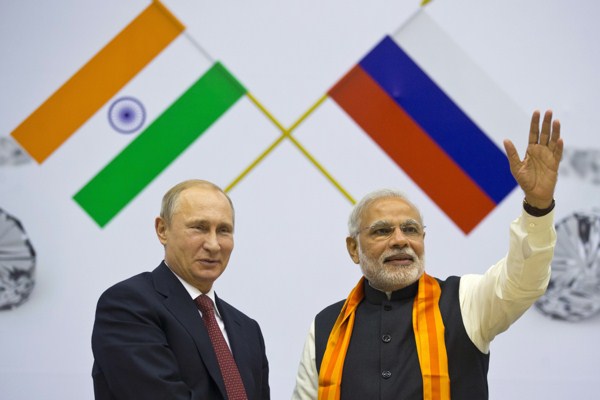On Dec. 11, Russian President Vladimir Putin became the latest suitor to court Indian Prime Minister Narenda Modi on the latter’s home territory. He follows Chinese President Xi Jinping and Japanese Prime Minister Shinzo Abe, and precedes U.S. President Barack Obama, who will travel to India next month for the country's Republic Day celebrations.
Unlike some Indian leaders, Modi does not have any ideological attachment to Russia. However, while New Delhi has ended its Cold War-era alignment with Moscow, India and Russia still share many overlapping interests. India is counting on Moscow to help secure New Delhi’s full membership in the Shanghai Cooperation Organization, for instance, while Russia considers India its most reliable bilateral partner in countering Sunni Islamist terrorism emanating from Afghanistan. Furthermore, having good ties gives both sides diplomatic leverage in Beijing, Washington and other foreign capitals. And expanding their direct economic exchanges helps dilute the dominance of China’s powerful economy in both their markets.
Nevertheless, both sides harbor concerns about recent shifts in their geopolitical orientations. In greeting Putin, Modi spoke of Russia as “a time-tested and reliable friend.” This diplomatic phrasing, though accurate, conceals Indian angst that Moscow’s troubles with the West are pushing it too close to Beijing, which China might exploit to India’s detriment. New Delhi is also watching cautiously the new Russia-Pakistan rapprochement. In turn, Russians worry that the United States and other Western countries will supplant Russia’s hitherto predominant position in India’s defense sector.

